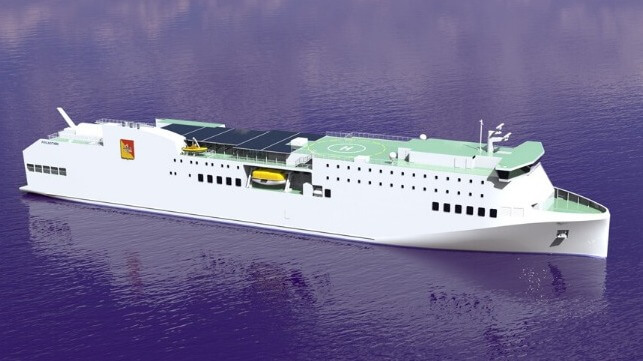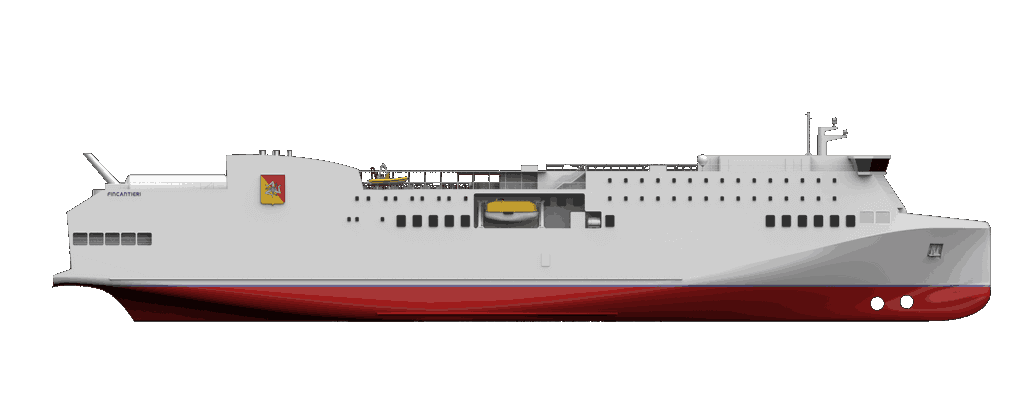Fincantieri to Build LNG and Battery-Powered Ferry in Sicily

Fincantieri is set to build a unique passenger-car ferry for Sicily under a new Italian government effort to enhance local transportation. The shipyard highlights that the project will help to restore domestic shipbuilding capabilities and the vessel will use a new innovative power system that includes batteries for zero-emission operations in port.
The contract for the new ferry was signed today in Sicily to further highlight the uniqueness of the effort. It will be the first vessel financed under Italy’s new law for the enhancement of public transportation. The law established a fund that will support the purchase of the vessel, which will be owned by the government in Sicily.
To further emphasize the domestic nature of the unique project, Fincantieri has committed to building the vessel entirely at the Palermo shipyard. Signing the agreement, the governor boasted that the vessel would be “Made in Sicily” and “represent a turning point for connections to the smaller islands.”
The ferry will be a Ropax Class A vessel at about 14,500 gross tons. It will measure approximately 460 feet and have a capacity for 1,000 passengers. It will also transport up to 200 cars.

“The awarding of this order represents an important test for Fincantieri. In an industrial sector that over time has moved to Asian shipyards, we have the opportunity to bring ferry production back to Italy, rehabilitate our historical competencies in the sector, and demonstrate our ability to be competitive while ensuring the highest production standards,” said Pierroberto Folgiero, CEO and Managing Director of Fincantieri.
It will also be one of the first passenger vessels built by Fincantieri with a dual-fuel LNG propulsion plant. The shipyard is currently building its first large, LNG-powered cruise ships with the first due for delivery early in 2024 to Carnival Corporation’s Princess Cruises. The propulsion plant, which will give the ferry a maximum speed of 19 knots, will operate on LNG or diesel fuel.

that matters most
Get the latest maritime news delivered to your inbox daily.
Another unique feature will be a battery energy storage system. It will be equipped with a photovoltaic system that will store energy in batteries. The vessel will be able to use the batteries to provide up to four hours of power while in port to ensure it operates with zero emissions. The vessel will also be equipped with a stabilizer system that they said is similar to those on oil platforms and will permit the vessel to dock even in bad weather.
The government of Sicily will also have an option to build a second vessel. The first ship is due to enter service in 2026 and will operate between Sicily and the islands of Lampedusa and Pantelleria.
